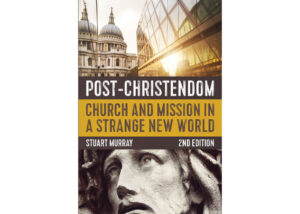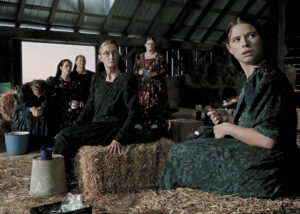During our trip to Canada for the Christmas break, I was surprised how many times I heard the same story. It goes something like this: They are trying to get us not to say “Merry Christmas” and to say “Happy Holidays” instead because someone might get offended. If they are offended by Christmas, they can go back to their own country. After all, if we were in their country, we would have to follow their traditions.
Honestly, I was shocked to hear this coming from the mouths of Canadians. Living in Korea and then in the United States, I guess I had a dreamy, idealized version of the harmonious multicultural society that Canada has always been and how much better a way of life it is.
My first thought was whether Canadians are watching too much U.S. television. I’m used to hearing that kind of story coming from the mouths of people who watch a lot of Fox News. I’ve also heard a similar story that replaces saying “Merry Christmas” with speaking English, or being “American.” Are Canadians simply imitating our neighbours to the south? Is that cool?
I’d like to look more at what this narrative says, though. I think there’s a lot to it. First of all, it states clearly that there is a feeling of threat that needs to be validated. Ignoring emotions and feelings of individuals or groups is one sure way to give that sentiment more power.
That said, if there is a feeling of threat, it means that this is an issue of power. Who has the power? Who feels like power is being usurped? By whom? There are a lot of assumptions about the concept of power behind this narrative. The idea is that power is a limited resource that only one person or group can hold at a time. Is that really how power works?
Also, there’s an assumption about the division between “them” and “us” and possibly even several divisions. There’s the “they” who are advocating “Happy Holidays.” Who is this “they?” Is it a media source trying to market to a broader audience? Is it a particular religious group? Then there’s the “they” of the people who might be offended by “Merry Christmas.” Is there overlap between this “they” and the former one? Are they different groups or the same?
In addition, this narrative makes some comparisons about different countries in the world, assuming that the make up of Canada’s society is parallel to the make up of other societies around the world, and that both the societies of “our” and “their” countries are homogenous groups that have one common worldview, religion, and set of customs. Are there any countries like that? Has Canada ever been like that? There are definitely dominant voices in a society, but particularly in Canada’s history, the dominant voice has included a great deal of diversity.
The biggest problem that I have with this narrative, though, is from a Christian perspective. Since the narrative does refer to Christmas, I think it’s fair to bring Christian worldviews into the discussion. Does the true meaning of the Christmas story match with this narrative of threat? Christians may insist on saying “Merry Christmas,” but that does not necessarily include the rest of the narrative of exclusion and division.
I think this is really a narrative that emerges from experiences at the end of Christendom – the dominance of the Christian religion and structures in a society. Stuart Murray’s book, The Naked Anabaptist, speaks to the shift that has been happening in the United Kingdom, Canada, the United States, and other formerly “Christianized” nations. At a presentation Murray did in Virginia last year, he emphasized how painful the move away from Christendom is and will be. He suggested that people in the United Kingdom are further along this path, and Canada, then the United States are following.
Moving from a position of privilege and dominance in a society to one of less privilege IS a very difficult experience and will bring with it a feeling of threat towards those who are also now gaining privileges. This threat of losing privilege is so strong that in 16th Europe, it led church leaders to persecute and kill thousands of Christians they called Anabaptists. These Anabaptists were arguing that the church and state should separate. The state should not control the church, but also not just anyone born in a certain region should be part of the church culture. They pushed for a voluntary commitment to a church community as adults rather than infant baptism which would automatically make people both citizens of a country and members of a church at the same time.
As Murray explains it, the end of Christendom has been a long time coming and the Anabaptists were one significant group in helping the end draw nearer. He says that of all groups who have enjoyed privilege in the system that linked Christianity with social, political, and economic power, Anabaptists should be celebrating. This is what they’ve worked for all along.
So if I think about this narrative again, I see that the push for “Happy Holidays” over “Merry Christmas” does not threaten my identity as a follower of Christ in the Anabaptist-Christian tradition. Likely, any social pressure in the “Happy Holidays” direction is probably due to marketing strategies more than any religious paradigm (which is another blog altogether).
And, given the precedent set before me in my ancestors of faith who proclaimed their first allegiance to Christ over all kings, leaders, or governments even to the point of martyrdom and lived lives counter to the dominant cultures around them, I will probably continue saying “Merry Christmas” regardless of social pressure.
Even more important, though, I can celebrate the coming end of Christendom which for centuries has put Christians above “the least of these” in our society in exactly the unjust way that Jesus spoke against and rejoice in a more equal sharing of rights and privileges for all of people created by God.
So let’s stop this narrative of threat in our Anabaptist Christian faith communities, confess our participation in the injustice of Christendom, AND continue saying “Merry Christmas” and celebrating the birth of the radical leader of our tradition who turned the world upside-down to welcome all in the most unexpected ways.





